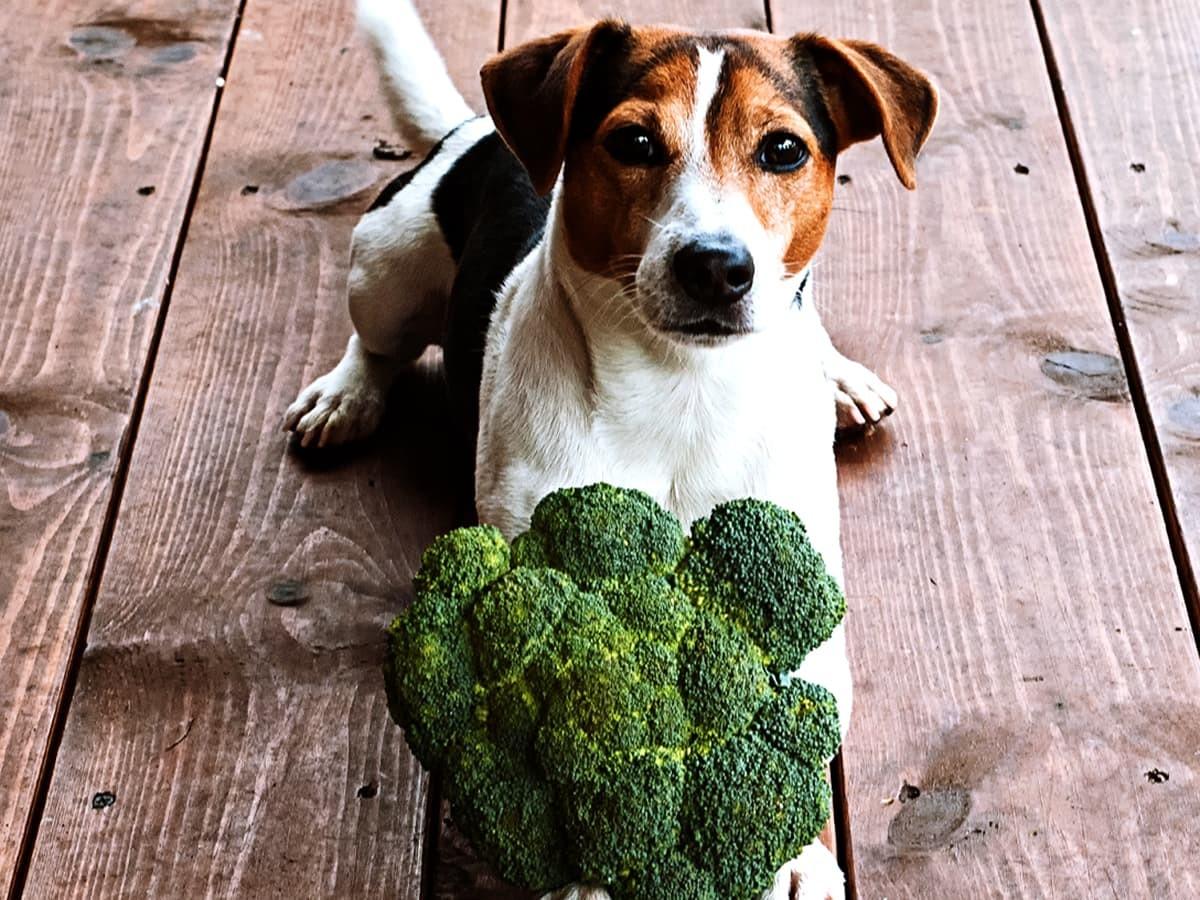Dogs can eat many of the same foods humans do, but some human foods can cause serious issues. Before giving your pup anything off your plate, it’s important to know whether it’s safe — including broccoli.
Broccoli is a popular health food for humans, and you may wonder whether it offers the same benefits for your dog. Below, we break down whether dogs can safely eat broccoli, its potential benefits, how to feed it safely, and important hazards to keep in mind.
Can Dogs Have Broccoli?
Yes — dogs can eat broccoli. It’s generally safe in small quantities and is not usually harmful. However, broccoli can be a choking hazard if not cut properly, and too much can cause gastric irritation due to compounds called isothiocyanates.
If your dog doesn’t tolerate broccoli well, stop feeding it to them and consult your veterinarian if you notice broader food sensitivities.
Is Broccoli Good for Dogs?
While dogs don’t need broccoli for nutritional balance (their complete nutrition should come from veterinarian-recommended food), broccoli can be an occasional low-fat treat. Some pet parents use small pieces of unseasoned broccoli as a healthier alternative to traditional dog treats.
Broccoli offers two main nutrients beneficial to dogs:
Vitamin C
Vitamin C helps support your dog’s immune system by neutralizing free radicals and reducing inflammation. Dogs naturally produce vitamin C in their livers, but supplementation through food can provide added support in some cases.
Fiber
Fiber plays an important role in digestion.
Soluble fiber absorbs water and can create gas if too much is consumed.
Insoluble fiber helps move food through the digestive tract and adds bulk to stool.
Including fiber-rich veggies like broccoli (in moderation) can support healthy digestion, though too much may cause gas or diarrhea.
Low Fat Content
Broccoli is naturally low in fat, making it a dog-friendly treat for pups who need to avoid high-fat foods. However, it should never replace nutritionally complete dog food.
How to Feed Your Dog Broccoli
Dogs can eat raw or cooked broccoli. Cooking can reduce choking risks.
Always cut broccoli into small, digestible pieces.
Feed plain, unseasoned broccoli only — no salt, pepper, garlic, onion, or oils.
Always supervise your pup while they’re eating.
If your dog dislikes broccoli or reacts poorly, remove it from their diet.
For best results, cook broccoli in plain, boiling water.
If you’re feeding fruits or vegetables because you’re worried your dog isn’t getting proper nutrition, talk to your vet about switching to a higher-quality dog food instead.
Potential Hazards of Feeding Dogs Broccoli
1. Broccoli Should Not Replace Dog Food
Broccoli should never make up more than 10% of your dog's daily calories. Excess broccoli can cause digestive issues and may lead to nutrient imbalances if used to replace dog food.
2. Isothiocyanates Can Cause Gastric Irritation
Broccoli florets contain isothiocyanates, which can cause stomach upset when eaten in large amounts.
Toxicity risk increases when broccoli exceeds 25% of daily caloric intake.
Smaller dogs are affected more quickly than larger dogs.
If you’re unsure, choose a different veggie your dog tolerates well and discuss options with your veterinarian.
Expert Insights From Spot
While sharing human food with pets can be tempting, it’s important to choose wisely. Spot's internal data shows that pet insurance claims for dietary indiscretions average $642* — a reminder that even small dietary mistakes can lead to significant veterinary costs.
Frequently Asked Questions
What’s the best vegetable for dogs? Carrots, green beans, and cucumbers are popular, low-calorie veggie options that most dogs tolerate well. Always feed vegetables in moderation and without seasoning.
What veggies can dogs not eat? Dogs should avoid onions, garlic, leeks, and chives, as well as raw potatoes. These can be toxic or cause digestive issues.
How much broccoli can dogs eat? Stick to less than 10% of your dog’s daily caloric intake to avoid digestive upset. Smaller dogs require even smaller portions.
Is broccoli a laxative for dogs? Broccoli’s fiber content can have a mild laxative effect in some dogs. However, too much can cause diarrhea or gas.

More About Spot Pet Insurance
Pet insurance can help provide financial assistance for covered veterinary care in case of unexpected accidents, illnesses, or injuries. Our plans can help pet parents manage the eligible costs of covered veterinary care and help ensure that their pets can receive the best treatment possible. Here are some ways that Spot pet insurance plans can help:
Helps Cover Unexpected Veterinary Costs: Spot pet insurance plans help cover the eligible costs of unexpected veterinary treatments, such as emergency surgeries, X-rays, and prescription medications for covered conditions.
Customizable Plans: Choose your annual limit, reimbursement rate, and deductible from a range of options, and create the plan that will fit the needs of your pet and your budget.
Peace of Mind: With Spot pet insurance plans, pet parents can know that they can provide the best care for their pet with less worry about the cost.
To learn more about Spot Plans or to get a free quote, click here.
Key Takeaway
Broccoli can be a safe and nutritious treat for dogs when fed correctly and in moderation. While it offers fiber and vitamin C, it also carries risks if served in large amounts or with seasonings. Always introduce new foods slowly, watch for digestive issues, and consult your veterinarian if you have concerns. With the right approach, broccoli can be a healthy, occasional snack — but it should never replace balanced dog food.

Mostly a tech person, always a pet person. I am dedicated to improving the lives of pets and their humans with technology. Off-duty, I enjoy writing about the misbehaving of computer programs and my two Aussiedoodles, Calvin and Hobbes.
*Jan 2019 to Aug 2024 administrator claims data.
Anna Burke, et al. “Can Dogs Eat Broccoli? Can Dogs Have Broccoli? Is Broccoli Good for Dogs?” American Kennel Club, 23 Sep. 2023, www.akc.org/expert-advice/nutrition/can-dogs-eat-broccoli/.
Emily Payne, “Vitamin C for Dogs: Functions, Recommended Intake, and More.” Wag Walking, 6 Jun. 2023, wagwalking.com/wellness/vitamin-c-for-dogs.
Victoria Lynn Arnold. “Can Dogs Eat Broccoli?” Petmd.com, PetMD, 27 July 2022, www.petmd.com/dog/nutrition/can-dogs-eat-broccoli.
The information presented in this article is for educational and informational purposes only and does not constitute or substitute for the advice of your veterinarian.












